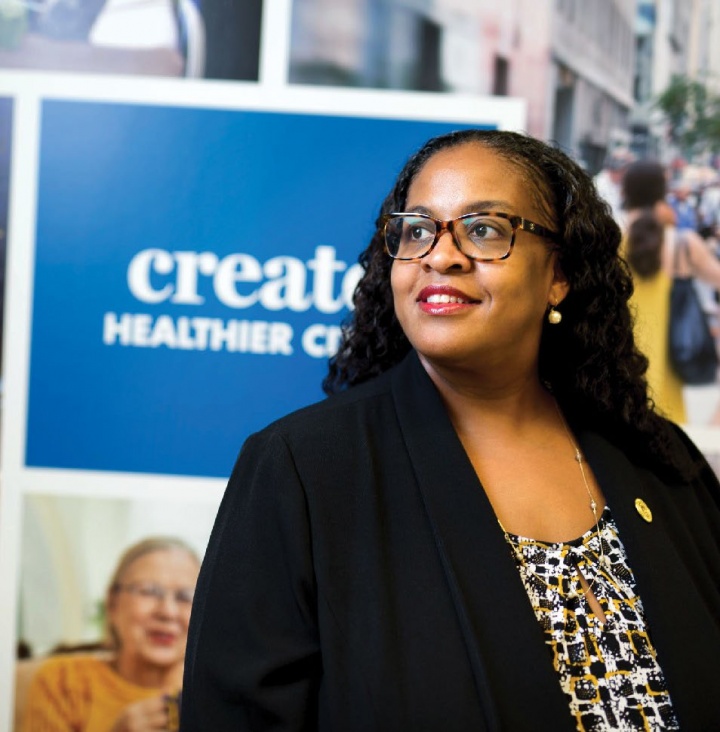Dean of Undergraduate Global Engagement Shannon Marquez has worked in global health and international education for 20 years.
Columbia College | Columbia University in the City of New York
Dean of Undergraduate Global Engagement Shannon Marquez has worked in global health and international education for 20 years.

COURTESY SHANNON MARQUEZ
What drew you to this role?
I’ve worked in global health and international education for 20 years. Traditional study abroad is often the first thing people think of when we talk about global experiences. But there are global internships, research and service-learning [education through real-life community problem-solving], as well as global courses. So I was excited when I learned that Columbia was looking for a senior leader to help develop a strategic vision that would incorporate these types of activities into undergraduate global engagement.
Though you began transitioning into your work here in November, you started full-time in January. What most excites you about the year ahead?
Setting up a new organizational framework that will support partnership across the undergraduate schools and promote global engagement activities. This will also provide an opportunity to strengthen connections, and share experiences and learning from different academic perspectives, including the professional schools.
What’s the most important thing for students to know about the recently launched Center for Undergraduate Global Engagement?
That it will significantly increase the diversity and breadth of global engagement and provide a centralized resource for students.
What would you say to a student who’s uncertain whether to pursue a global opportunity?
I’d talk to them about how we live in an increasingly interconnected world. And how, to fully participate in that world, it’s important to increase their cross-cultural understanding and explore the array of global engagement opportunities available. That includes here in New York — a truly global city! — on campus and abroad. Short-term international experiences, global-themed courses, research opportunities and internships are great alternatives to completing a traditional semester-long study abroad program.
Did you study abroad or have another kind of international experience as an undergrad?
No, but I completed the seventh, eighth and ninth grades in Japan before returning to the U.S. to complete my last three years of high school. Because I attended an international school while I was there, in addition to learning about Japanese culture, I was also able to build relationships with students from many different backgrounds and cultures — from Europe, Africa, the Americas and other Asian countries. It gave me a solid foundation to develop my interests in exploring the interconnections between people and places around the world.

Published three times a year by Columbia College for alumni, students, faculty, parents and friends.
Columbia Alumni Center
622 W. 113th St., MC 4530, 6th Fl.
New York, NY 10025
212-851-7852
cct@columbia.edu

Columbia Alumni Center
622 W. 113th St., MC 4530, 4th Fl.
New York, NY 10025
212-851-7488
ccalumni@columbia.edu